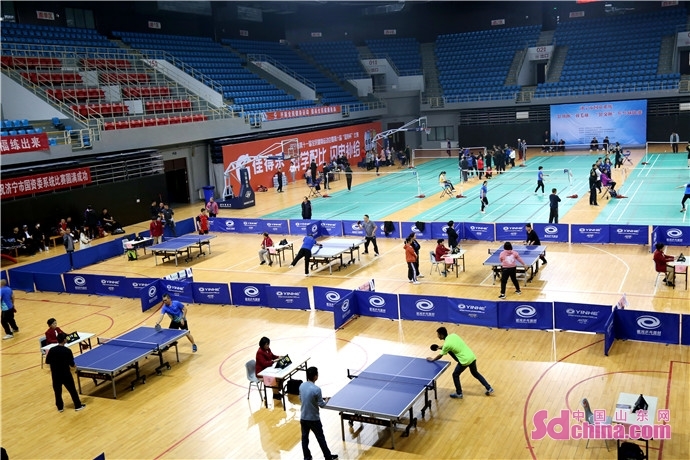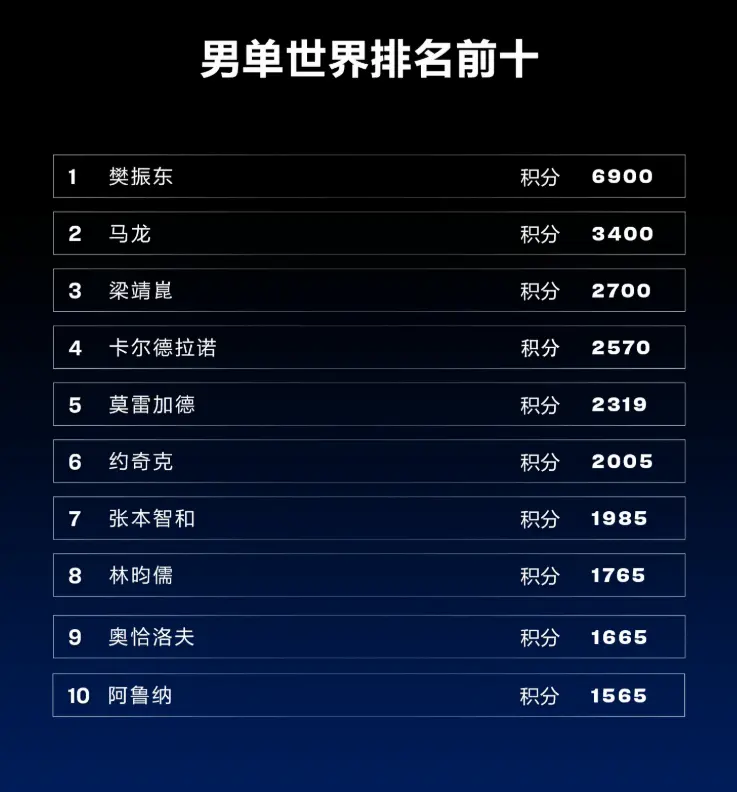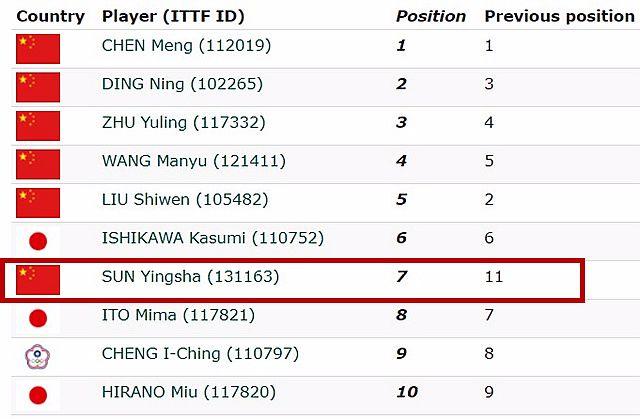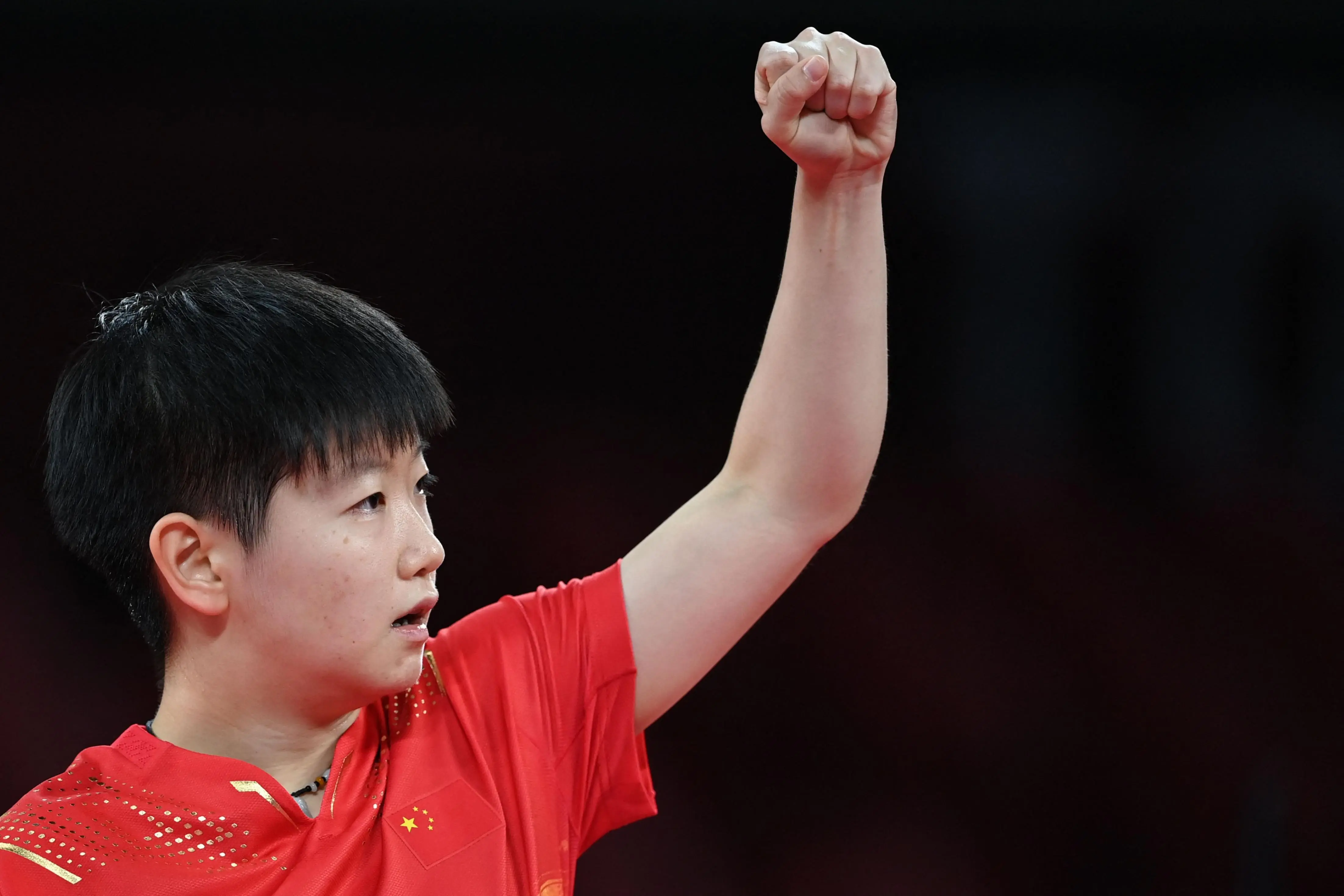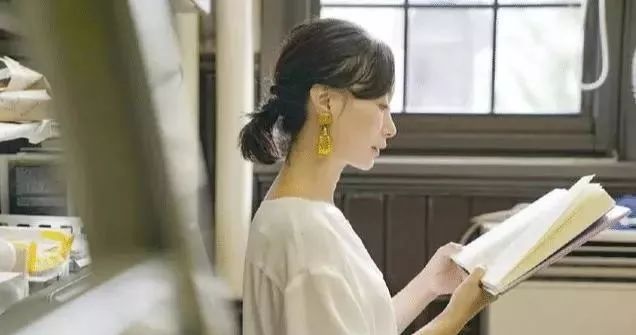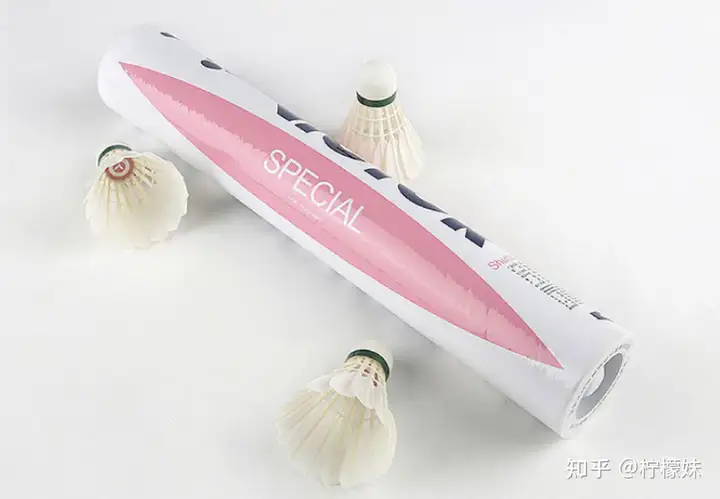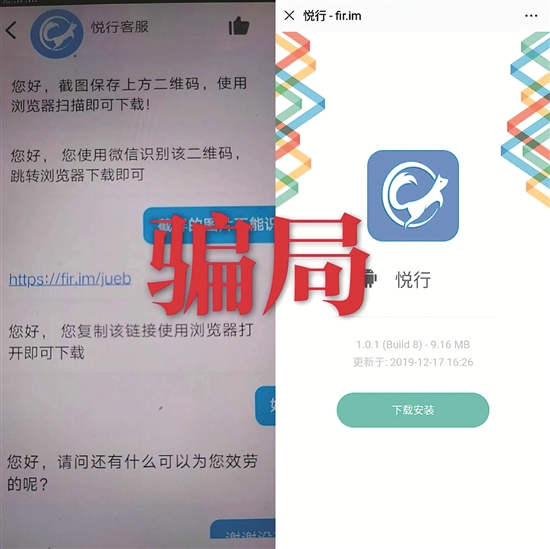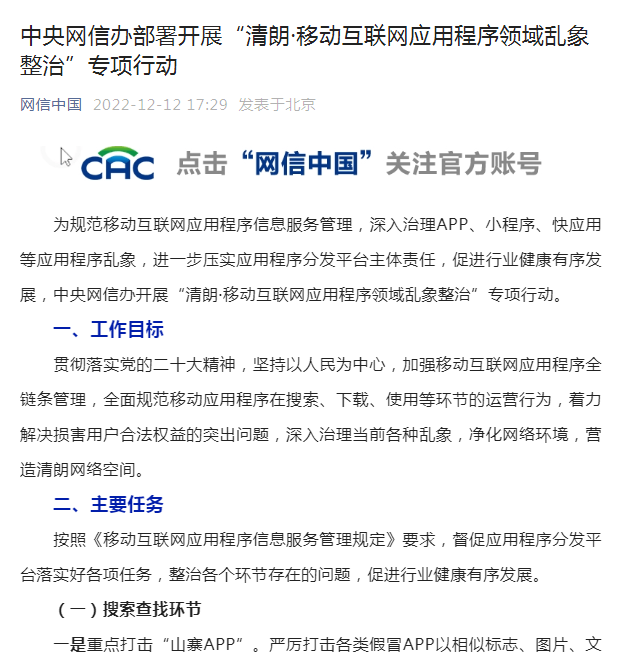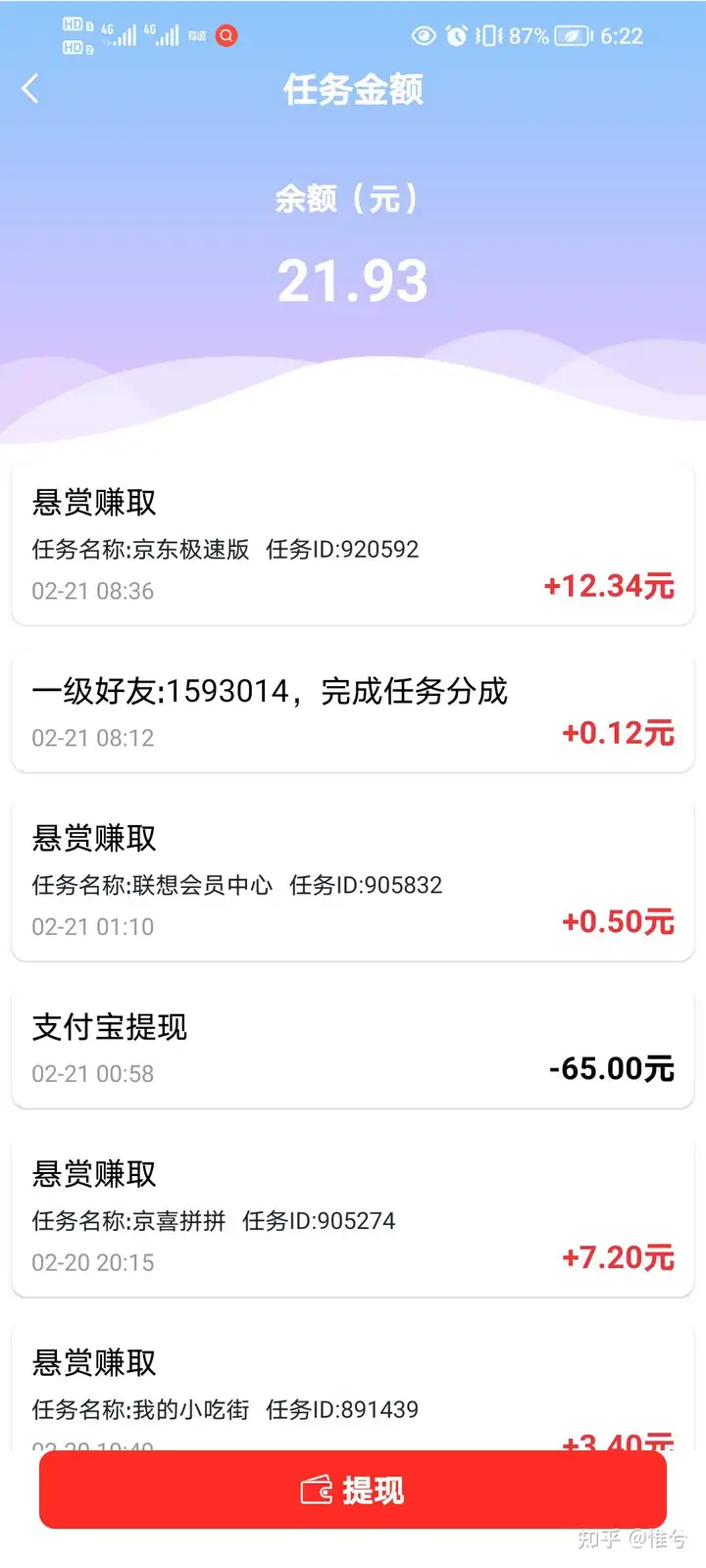【期末复习】八年级英语上册知识点总结(可免费下载)
期末寄语
还有一个月就要期末考试了,为了方便同学们复习,我们专门整理了初中所有科目上册的知识点,帮同学们把各个科目里最精华的部分归纳起来,并且会准备了一些期末真题,让大家在复习后可以刷题巩固。
这些资料整理总共花费了差不多一个月的时间,我们把他无偿的共享出来,放在推文里方便大家查阅,并且提供了免费下载的方式,让大家可以打印出来复习。由于资料整理不易,同学们在下载的时候可以顺带帮我们分享一下,也算是的对我们劳动成果的一种回报,不用1分钟的功夫。
关注公众号的同学都知道我们算是一个公益性质的公众号,全部资料都是免费下载,你分享给同学们不仅你受益,同学也会因为你的分享受益,并且你的分享将会是支撑我们继续更新的动力!谢谢支持!期末加油!
↓资料下载方式在文末↓
八年级上学期英语考试知识点
一、重点单词
1、against 可以用来表示跟某人/某个班级等进行的比赛。
如:We are going to have a basketball game against Class Three on Sunday.
2、win sth. 例如:win a game, win a race, win a gold medal, win first place
【注意】win不能用于win sb.,要说打败某人,应该用beat /defeat sb.
3、join:
①join sb.表示“加入某人的行列,和某人一起”
如 Will you join us?
你愿意加入我们吗?
②join +组织 表示“加入某个组织”
如 I am going to join the school music club.
我打算加入学校音乐俱乐部。
③join in +活动 表示“参加某项活动”
如 Jane is going to join in the volleyball match next week.
简打算下周参加排球赛。
【联想】take part in+活动(相当于“join in +活动”),表示“参加某项活动”。要注意与join的用法区别,join要加某人或某个组织,join in才能加“某项活动”(= take part in+活动)。
4、ski现在分词为skiing [同学们不要觉得怪怪的,就是这样子]
5、row要变成ing形式时,直接加ing,即rowing,因为ow是字母组合。
6、dream(“梦,梦想”之意)是可数名词。
7、job是可数名词,work是不可数名词(work还可以做动词)。
8、exercise
①跟体育运动有关的运动、锻炼,是不可数名词。但要注意如果是做早操或眼保健操exercise要加s②指书本上的练习、作业,是可数名词。
9、①ill不能作定语,一般作表语。
②sick可作定语也可作表语。
The child is ill. 也可说The child is sick.
a sick child(不能说 an ill child)
10、competition竞赛 [可数名词]
11、score ⑴作为动词是“得分”的意思。
⑵作为名词意思为“分数”,指的是所得分数,是一个数字。
如:①a score of 3—2 ②The score is 80. ③ a score of 90
注意与point的区别:
1 point,2 points, three points等等,每一分即一个point,
如His score is 20 points more than mine. 他的分数比我多20分。
12、century:复数形式为centuries
country:复数形式为countries
[ 以辅音字母+y结尾,要变y为i加再es ]
13、Canadian加拿大人:a Canadian, two Canadians
American美国人:an American, two Americans
Chinese中国人:a Chinese, two Chinese
Japanese日本人:a Japanese, two Japanese
[这四个单词也可作形容词,如 ①He is Canadian.(作表语)= He is a Canadian.②He is a Canadian boy.(作定语) ]
【注意】英国人和法国人的说法如下
an Englishman, two Englishmen (英国人,英国男人)
an Englishwoman, two Englishwomen (英国女人)
a Frenchman, two Frenchmen (法国人,法国男人)
a Frenchwoman, two Frenchwomen (法国女人)
He/She is English / French. (English / French是形容词)
He is an English boy. She is an English girl.
He is a French boy. She is a French girl.
不能说 “He/She is an English.”以及“He/She is a French.”
14、chocolate 巧克力 ,(在本课中)是不可数名词
15、chip炸薯条 通常用复数形式chips,noodle也是通常用noodles
16、easy(形容词)与easily(副词):
作定语或表语用形容词,修饰动词用副词 (形容词与副词的常用法)
The question is easy. It’s an easy question.
He answered the question easily. 他轻易地回答了这个问题。
17、habit习惯,是可数名词。如eating habits,a good / bad habit
18、fun 作为名词是不可数名词,作为形容词只能放在名词前面。
19、grass草,草地 coffee咖啡,tea茶,candy糖果 [一般作不可数名词]
20、tooth复数为teeth,foot复数为feet
21、Internet因特网,互联网 [首字母记得用大写]
22、pill药丸,药片 [可数名词]
23、advice忠告,建议,劝告 [不可数名词]
24、ice冰 [不可数名词]
25、health健康 [不可数名词]
26、sleepy困的,想睡觉的 区别:asleep睡着的
27、medicine药 [不可数名词]
28、an article 一篇文章
29、litter垃圾 [不可数名词]
30、energy能量 [不可数名词]
31、skin皮肤 [不可数名词]
32、air空气 [不可数名词]
33、wealth财富,财产 [不可数名词]
34、beef牛肉 [不可数名词]
35、tomato西红柿 [可数名词,复数形式为tomatoes ]
36、potato 马铃薯 [可数名词,复数形式为potatoes ]
37、sandwich 三明治 [可数名词,复数形式为sandwiches ]
38、message消息 [可数名词] 区别:news 新闻,消息 [不可数名词]
39、happiness 幸福,愉快 [不可数名词]
40、exam 考试,测试 [可数名词] the exam, an exam
41、mistake错误 [可数名词] make a mistake犯错误
但“ by mistake错误地”是习惯用语
42、business生意,(本分)工作 [不可数名词]
43、accident事故 [可数名词] have an accident 出事故
44、try过去式为tried
45、prefer过去式为preferred
46、下例动词要变成ing形式得去掉不发音的e:
skate, exercise, arrive, leave, practice, serve, become, encourage,
improve, cause, smoke, choose, examine, save, type
注意:lie和die要变成ing形式比较特殊:lying, dying
47、throw变成ing形式直接加ing:throwing
48、hit变成ing形式要双写t再加ing:hitting
49、ring变成ing形式直接加ing:ringing [同学们不要觉得怪怪的]
二、目标短语
1、during the summer holidays在暑假期间
2、have a basketball game举行一场篮球赛
3、against Class Three [表示跟三班的进行比赛,用against]
4、on Sunday 在星期日
5、the first basketball game第一场篮球赛
6、this term这学期
7、cheer us on为我们加油
cheer on 属于“及物动词+副词”的结构
因此:①宾语是名词,可中可后
如 cheer Li Ming on = cheer on Li Ming
②宾语是代词,只能放中间
如 cheer her on
8、join the school rowing club加入学校划船俱乐部
9、play for a team为某球队效力,on/in a team在某球队打球
10、quite a bit / quite a lot 许多,大量
11、grow up 长大成人
12、in the world在世界上
13、break the Olympic record 打破奥运记录
14、win a gold medal赢得一枚金牌
15、in the 2008 Beijing Olympics在2008年北京奥运会上
16、give up
⑴不及物动词(不加宾语)
如 Don’t give up so easily.不要这么轻易放弃
⑵及物动词(要加宾语)
①名词作宾语可中可后,如 give up the race = give the race up
②代词作宾语只能放中间,如 give it/them up
17、in the future今后
18、take part in参加 [+某项活动],参见重点单词第3小点。
19、have a nice day 玩得高兴,过得愉快
类似的词组还有:
have a good time
have a nice time
have a great time
have a wonderful time
20、an hour 一小时, half an hour半小时
21、do exercise做运动 = take exercise
[exercise运动,是不可数名词]
注意:做早操要说 do morning exercises
do sports做运动 = take sports
22、pretty well相当好
23、the high jump跳高, the long jump跳远
24、a.m.上午,p.m.下午
25、all over到处,遍及
26、be good for 对……有益
27、the day after tomorrow后天
28、keep fit/healthy 保持健康
29、arrive in/at 到达
[①小地方(家、店、公园等等)用at;②大地方(城市或国家等)用in;③镇和村:薄冰语法用at, 美国之音(美国一个权威的国家电台)用in
30、play against… (同……比赛)
31、leave for+某地 (动身去某地)
32、twice a week每周两次
33、go mountain climbing去爬山
34、on Sundays在每星期日
35、①every day每天 [用来作时间状语]
如She goes skating every day.
②everyday每天的 [用来作定语]
如 everyday life 日常生活
36、next weekend下周末
37、cheer her on为她加油
38、be sure确信
39、go cycling去骑自行车
类似的词组还有:go shopping, go swimming, go fishing,
go skating, go skiing, go boating等等。
40、on Sunday mornings在每星期日上午
41、on Saturday afternoons在每星期六下午
42、tomorrow morning明天上午
43、make me strong使我强壮
[make sb./sth. + 形容词,意为“使某人/某物……”]
44、all over the world 遍及全世界
45、this afternoon今天下午
46、keep her heart healthy使她的心脏保持健康
[ keep sb./sth. + 形容词,意为“使某人/某物保持……”]
47、a good way to keep fit一种保持健康的好方法
48、stay for long久留 (待很久)
49、this weekend这周末
50、get there到达那里[there是副词,不用to]
类似的还有:get here, get home
get to Beijing到达北京[Beijing是名词, 所以要用to]
51、prepare for it为它做准备 [prepare for sth. 为……做准备]
52、climb a mountain爬山
53、row a boat划船
54、play volleyball打排球
55、do me a favor 帮我个忙 (do sb. a favor)
56、fall ill 患病,病倒
57、between our school and No. 10 High School 在我们学校和第十中学之间
58、last week 上周 this week这周 next week下周
59、pass me some water = pass some water to me
[ pass sb. sth. = pass sth. to sb. ]
60、somewhere else 别的地方
61、throw bottles around 乱扔瓶子
62、next time下一次
63、shout at me 对我大声吼 [shout at sb.]
64、be angry with him生他的气 [ be angry with sb. ]
65、say sorry to sb. 向某人道歉 如say sorry to her/Li Ming
类似的还有:say hello/thanks/goodbye to sb. 向某人问候/道谢/道别
66、do better 做得更好
67、serve the food 上菜
68、turn down 把……关小/调低
turn down the music = turn the music down [名词作宾语可中可后]
turn it down [代词作宾语只能放中间]
69、in a minute 马上,立即
同义词组:right now, right away, at once
70、keep me waiting 让我一直等 [ keep sb. doing sth. 让某人一直做某事]
71、be ready 准备好了
72、on the phone 用电话,通过电话
73、last night 昨天晚上
74、be late for class上课迟到 [ be late for… ]
75、take a seat 坐下,就座
76、your plans for this year 你今年的计划
77、take part in the games 参加比赛
78、one of the most popular sports 最受欢迎的运动之一
79、a history of over a century 一百多年的历史
a history of twenty years 二十年的历史
a history of over twenty years 二十多年的历史
80、at that time 那时
81、in bad weather 在糟糕的天气
82、how to score 怎样得分
83、put the ball into the other side’s basket
84、throw the ball into the basket
85、more and more popular 越来越受欢迎
86、in the sun在阳光下
87、a 15-year-old boy [ 用连词符号,相当于形容词的作用。year不能加s]
88、get tired变得疲劳 [ get+形容词,意为“变得……”]
89、one year ago一年前
90、one morning 一天早晨
91、look + 形容词,意为“看起来……”
look fit 看起来健康,look active看起来精力旺盛
look happy看起来很高兴, look well看起来气色很好 / 很健康
look pale看起来脸色苍白, look tired 看起来很累
[look在这里是(连)系动词,后面接形容词的动词就是(连)系动词]
92、have a 1.5-mile run 跑1.5英里 [ run在这里是名词]
93、instead of sth./sb. 代替某物/某人
instead of chips and chocolate 代替炸薯条和巧克力
instead of him代替他 instead of Li Ming 代替李明
94、feel + 形容词,意为“感觉……”
feel well感觉(身体)健康 [身体健康汉语经常说身体好]
feel tired 觉得累 feel excited感到很兴奋
95、do well in… (在……做得好) [ 同义:be good at… ]
96、in our school sports meet 在我们学校运动会上
97、on the playground 在操场上
98、a/the school sports meet 校运会 [ 用a泛指, 用the特指 ]
99、be ready for… (为……准备好)
100、do one’s best 尽某人最大努力 如 do my best尽我最大努力
101、make friends 交朋友 make friends with sb. 与某人交朋友
102、during the sports meet在运动会期间
103、a pair of running shoes一双跑鞋
104、another relay race另一场接力赛
105、at my house在我家 [ 强调地点]
106、go together 一起去
107、go to the movies 去看电影
108、at the theater 在剧场,在戏院
109、at the train station 在火车站
110、at the school gate 在学校大门
111、on the farm在农场
112、in the relay race 在接力赛中
113、win first place 赢得第一名
114、take some photos拍照
115、hold a sports meet 举办运动会
116、do badly in… (在……方面做得不好) [ 反义:do well in…]
117、cross the finish line冲过终点线
118、some day将来某一天 [ 也可以用someday ]
119、win the boys’ 400-meter race 赢得男子400米比赛
120、hold a wonderful sports meet举办了一次精彩的运动会
121、win the first gold medal 赢得第一枚金牌
122、more trees 更多的树 more grass更多的草
[①more + 可数名词的复数形式 ② more + 不可数名词 ]
123、improve our environment 改善我们的环境
124、stand for… (代表……)
125、have a cold患感冒 have a bad / terrible cold患重感冒
have a fever, have a cough, have the flu, have sore eyes,
have a toothache, have a backache, have a stomachache
126、see a dentist看牙医
127、get well康复/变得健康 [ get + 形容词,意为“变得……” ]
I hope you’ll get well soon. 我希望你快点好起来。
128、go to see a doctor去看医生
129、read too long 看书太久
130、take a rest 休息 [ = have a rest ]
131、in the evening 在晚上 at night 在晚上,在夜里
【区别】evening晚上,指从日落到就寝时。还有傍晚、黄昏之意。
night(“夜,晚上”之意)指从日落至次日日出为止。
【注意】① Good evening.晚上好。[ 是用于晚上见面时向对方问候的]
Good night.晚安。[ 是用于晚上跟对方告别或睡觉前说的]
② I can’t sleep well at night.
[ 不能用in the evening ,因为evening指从日落到就寝时]
132、plenty of大量的:① +可数名词复数形式,如 plenty of trees
② +不可数名词,如 plenty of boiled water
【注意】①plenty of 与lots of(= a lot of )用法一样,一般用于肯定句中,否定句和疑问句中多用many/much ②many/much也可用于肯定句中,常与so或too连用。即so many/much…,too many/much… ③ many + 可数名词复数形式 [so/too many也一样],much+不可数名词[so/too much也一样]。
133、stay in bed卧床休息
134、have a sleep 睡觉 have a good sleep 睡个好觉
135、look pale看起来脸色苍白
136、feel terrible感觉不舒服
137、day and night日日夜夜
138、have a rest 休息 have a good rest 好好休息
139、have a sore throat (患)喉咙痛 have a terrible sore throat喉咙痛得厉害
140、lie down 躺下来 [ 不能加宾语 ] 如:You’d better lie down and rest.
141、hot tea with honey (带有蜂蜜的热茶)
142、too much candy太多糖果 [ too much + 不可数名词]
143、so much candy 这么多糖果
144、twice a day 每天两次
145、on the Internet 用因特网,通过因特网
146、so long 这么久, 那么久
147、take care of 照顾 take good care of好好照顾
148、build up 使……更强壮, 增强……体质 [ 及物动词+副词 ]
①宾语是名词,可中可后
build my friend up = build up my friend
②代词作宾语只能放中间
build me up
149、check over给……做体检/健康检查;核对,检查
“及物动词+副词”的结构:
① 名词作宾语可中可后
如check over Li Ming = check Li Ming over
②代词作宾语只能放中间 如 check him over
注:宾语可以是人或物。
150、worry about sth./sb. 担心某事/某人
“不及物动词+介词”的结构
宾语不管是名词还是代词,都只能放在介词后面
如 worry about him/Li Ming 担心他/李明
worry about my weight 担心我体重
151、be glad to do sth. 乐意做某事
152、make one’s bed 整理床铺 如 make my bed
153、keep doing sth. 继续做某事 keep sb. doing sth.让某人一直做某事
154、at least 至少, 不少于
155、boiled water 开水
156、a symbol of… (……的标志) 例a symbol of the Olympic Games
157、take a pill 服药片/药丸
158、nothing serious 没什么严重的
[“不定代词(something, nothing, anything) +形容词” (形容词要放在不定代词的后面 ),如 I have something important to say. 我有一些重要的事情要说。]
159、return to +某地(回到某地) 如 return to Shanghai回到上海
当“某地”是副词时,不用介词to:
return home 回家,return here回到这里,return there回到那里
160、call a taxi 叫出租车
161、have an accident 发生一场事故
162、take him to the hospital带他去医院
take sb. to +某地 (带某人去某地)
当“某地”是副词时,不用to:
如 take me home带我回家, take me there带我去那里
163、hurt可作及物动词,也可作不及物动词:
I hurt my left leg. 我伤到我的左腿。[hurt为及物动词]
宾语
My left leg hurts. 我左腿疼。[hurt为不及物动词]
164、look after myself照顾我自己
165、ask for two weeks’ leave 请两天的假
166、return to school 回到学校上课
167、have a bad weekend 度过一个糟糕的周末
168、after that 之后
169、feel sleepy感到很困倦 [ feel +形容词]
170、eat too little 吃太少 eat too much吃太多
171、take some medicine 服一些药
172、①have a big breakfast吃一顿丰盛的早餐
[breakfast有big修饰可理解为种类,即什么样的早餐,所以可以加a ]
②have breakfast 吃早餐 [ 不用冠词 ]
173、stay up late at night晚上熬夜
174、go to bed early早睡 get up late晚起 get up early早起
175、keep fingernails long 留长指甲 [ keep sth./sb. +形容词 ]
176、wash hands before meals饭前洗手
177、play sports right after meals饭后立即运动
①play sports进行体育运动
②right after… (……之后马上……;就在……之后)
178、go to school without breakfast 不吃早饭去上学
179、brush teeth twice a day 一天刷两次牙 [刷牙记得用复数形式teeth ]
180、have a bath洗澡
181、an article about smoking 一篇关于吸烟的文章
[ 介词后面的动词要变成动名词,才能作介词的宾语 ]
182、in the newspaper 在报纸上
183、give up smoking戒烟
184、read in the sun在阳光下看书
185、throw litter around 乱扔垃圾
186、enough water足够的水 enough books足够的书
[enough作为形容词,后面要接不可数名词或可数名词的复数形式,不可以接可数名词单数形式。比如不可以说enough book ]
【注意】enough的位置:
enough作为形容词,修饰名词时可前可后。但意思有点不一样:
①We have enough food for this week.
我们这周的食物够了。
②We have food enough for this week.
我们这周的食物绰绰有余。
enough作副词时,只能放在形容词或副词的后面:
warm enough 足够暖和
carefully enough 足够仔细
187、during the day 在白天 [ 相当于 in the daytime ]
188、get headaches患头痛 get a headache患头痛
189、a pain in your head 在你的头部的疼痛
190、work too hard工作太努力
191、get enough sleep 获得足够的睡眠 [sleep在这里是不可数名词]
192、exercise for a long time 做运动很久 [exercise在这里作动词]
193、exercise on an empty stomach 空腹锻炼 [exercise在这里作动词]
194、get into the human body 进入人体
195、cause diseases 引起疾病
196、through the nowe通过鼻子 through the mouth通过口腔
197、through the skin通过皮肤
198、have an illness 生病 [ illness和disease都可作可数名词]
区别:disease指具体的某种疾病 illness泛指不健康的状态
199、keep the air fresh保持空气清新
200、tidy our rooms整理我们的房间
201、sweep the floor扫地 注意与clean的区别:
sweep专指清扫地上的垃圾或灰尘,而clean包括各种方式的清洁。
202、in public当众,公开地 spit in public在公共场所吐痰
203、as we know众所周知
204、help make us strong有助于使我们强壮
205、become sick 生病 [ become +形容词]
同义:be ill [ 强调生病的状态]
have an illness, fall ill, become sick [强调从健康到生病的转变]
206、every night每天晚上 every day每天 every week 每周
207、less than… (少于…… ) 例 less than 7 hours 少于7小时
more than… (超过……) 例 more than two days 超过2天
208、less than three times a week 每星期少于3次
209、once一次 twice两次 three times 三次 four times四次 ……
210、on TV在电视上播放 例 Dad is on TV!爸爸上电视了!
211、go ahead开始做,着手干
212、among people在人们之间 注意与between的区别:
among三者或三者以上的人或物之间, between两者之间
213、these days这几天 those days 那几天
214、keep our rooms clean保持房间干净
215、all the time一直,始终
216、take one’s advice接受某人的建议 如 take your advice
217、keep away from crowded places 远离人多拥挤的地方
①keep away from… 远离…… ②place是可数名词
218、drink lots of boiled water喝许多开水
219、take some cold pills 吃些感冒药
220、lie down and take a good rest 躺下来好好休息
221、go to crowded places去人多拥挤的地方
222、examine a patient 检查病人
223、ring up 给……打电话 [及物动词+副词]
①名词做宾语,可中可后 ring up John = ring John up
②代词作宾语只能放中间 ring him up
224、an hour later一小时以后
225、phone his father’s office往他父亲的办公室打电话
[ phone sb./ call sb./ring sb. 打电话给某人:phone用在英国语语比美国英语普通,call美国英语和英国英语都常用,ring比phone和call不正式]
226、leave a message 留口信 take a message 捎口信
227、give him the message = give the message to him
228、call him back 给他回电话 [ call sb. back 给某人回电话 ]
229、give a talk 做报告 have a talk听报告
230、on time按时,准时
231、give a talk to the students给学生们做报告
232、make you fat使你/你们肥胖 make you unhealthy使你/你们不健康
233、stay safe 保持安全 [ stay +形容词,意为“保持……”]
234、first aid 急救 [名词]
235、on the other hand另一方面
236、avoid smoking and drinking远离烟酒
[ ①avoid sth. ②avoid doing sth. 避免……]
237、[ make sb./sth.+动词原形]
make something happen使某事发生
make sb. do sth.使某人做某事
238、try to do sth. 设法做某事,努力做某事,试图做某事 [可能不成功]
try not to do sth.设法不做某事
239、talk in groups分组讨论
240、break out爆发,突然发生 [不加宾语]
241、lose one’s life 丧生 例lose his life 注意:lose过去式为lost
save one’s life 挽救某人的生命
242、stay at home待在家
243、learn by oneself 自学 [相当于teach oneself]
例 I learn English by myself. = I teach myself English. 我自学英语。
244、take an active part in… 积极参加……
246、care for sb. 照顾某人 [不及物动词+介词]
宾语不论是名词还是代词,都只能放在介词的后面。
相当于 look after, take care of
247、most students 大多数学生
248、during those days 在那些日子里
249、be afraid of sth./sb. 害怕某物/某人
250、give me another one给我另外一个
251、pass the exam通过考试 fail the exam考试没通过
252、this time这次,next time下次,last time上次
253、get a cold 得了感冒 相当于have a cold
254、buy her a pen = buy a pen for her 给她买了一支钢笔
255、break the window打坏窗户
256、hand in 交上…… [及物动词+副词]
①宾语是名词,可中可后
hand in your homework = hand your homework in交家庭作业
②宾语是代词,只能放中间
hand it/them in
257、look for 寻找 [强调找的动作和过程]
find找到 [强调找的结果]
258、bring it to me 把它带来给我 [bring sth. to sb.把某物带来给某人]
bring sth. to sb. = bring sb. sth.
例 bring a book to me = bring me a book
注意:我们可以说bring it to me,但不可以说bring me it
即带来的某物是代词时,只能用bring sth. to sb.的句型。
259、some of his classmates 他的一些同班同学
260、have a look看一看 have a look at sth./sb.看一看某物/某人
261、do the same sports 做同样的运动
the same的用法:① +单数可数名词② +复数可数名词③+不可数名词
例 the same book, the same things, the same quality (相同的品质)
262、learn to skate学会滑冰 [learn to do sth.学会做某事]
263、every four years 每四年一次
[every后面一般加单数可数名词,但也可以加“数词+名词复数形式”]
264、the most popular sport最受欢迎的运动
265、put away 把……收起来放好 [ 及物动词+副词]
①宾语是名词,可中可后
put medicine away = put away medicine
②宾语是代词,只能放中间
put it/them away
266、since then从那时起
267、hurry up赶快,快点
268、just a moment请稍等,稍等一会儿
269、a kind of… 一种……
270、do sth. by mistake 错误地做某事
271、on business 出差
272、in different ways 以不同的方式
273、talk with sb. 和某人交谈
274、catch the flu 患流感
三、重要句型
1、be going to+动词原形,be为am,is或are时,为一般将来时态,表示将来某个时间要发生的动作或存在的状态。
①表示打算、计划做某事 (有时译成“要做某事”)
如I am going to play basketball with my classmates this Sunday.
②根据一定迹象,预测将发生某事。
如Look at those clouds! It’s going to rain.
2、①see sb. do sth.意为“看见某人做某事”。
表示看见事件、行动的全过程,动作已经结束。
表示经常看到某人做某事也要用see sb. do sth.
如I saw her cross the road.
I often see you play basketball after school.
②see sb. doing sth. 意为“看到某人正在做某事”
强调事件、行动正在进行。
如 I saw her dancing at this time yesterday.
昨天这个时候我看见她正在跳舞。
3、hope+宾语从句
如 I hope our team will win. 我希望我们的队会赢。
4、Me, too. 我也一样。
5、— Which sport do you prefer, cycling or rowing?
(骑自行车和划船相比,你更喜欢哪种运动?)
— I prefer rowing.
6、— Do you row much? (你经常划船吗?)
— Yes, quite a bit/quite a lot./ No, seldom .
(是的,常常。/不,很少。)
7、I like Yao Ming best. 我最喜欢姚明。(三个或三个以上在比较)
I like Yao Ming better.我比较喜欢姚明。(两个在比较)
8、Do you know anything about him?
①肯定句用something,如I’d like to have something to eat.
②否定句和一般疑问句用anything,
如 I don’t want to eat anything.
Do you know anything about him?
③但如果是表示请求或建议的疑问句要用something。
如 Would you like something to drink?
What about something to eat?
9、He and McGrady both play for the Houston Rockets in the NBA.
①“两者”用both,“三者或三者以上”用all
② play for a team为某球队效力
in a team(英式英语)在某球队打球
on a team(美式英语)在某球队打球
10、I’m going to be a basketball player like him. [ like him作后置定语]
我打算成为像他一样的篮球选手。
11、What are you going to be when you grow up? 你长大以后想当什么?
“When+一个句子”,英语里把它称为“由when引导的时间状语从句”,用来表示什么时候。当主句是一般将来时态时,时间状语从句要用一般现在时来表示将来。如本句中的“when you grow up”用的是一般现在时态,来表示将来(长大以后)。
【注意】有些个别单词(如 want, can等等)虽然用的是一般现在时态,但表示的也是将来的事,这时候时间状语从句也要用一般现在时来表示将来。
如:I want to be a doctor when I grow up.
(相当于I am going to be a doctor when I grow up.)
He hopes to be a singer when he grows up.我们长大以后就可以开车。
12、He is one of the best runners in the world.
①one of+可数名词复数形式,意为“……之一”
②“one of+可数名词复数形式”作主语时,谓语动词要用单数形式。如 One of the students is my good friend.
【解析】 有的同学看到the students是复数的,就以为要用are,其实应该用is才对。为什么要用is呢,因为介词短语of the students是作后置定语(修饰one),one才是主语,所以要用单数的is。
再如:One of them plays basketball every day.
主语是one,所以谓语动词要用第三人称单数形式。
13、She won two gold medals twice.
她赢得两枚金牌赢了两次。(所以总共是赢得四枚金牌)
14、Liu Xiang took part in both the Athens and Beijing Olympics.
“both…and…”用来连接两个并列成份。当它连接两个并列主语是,谓语动词用复数形式。如 Both Li Ming and I are students.
15、She spends half an hour doing exercise in the gym every day.
⑴spend…(in) doing sth. 花费……(时间/金钱)做某事
⑵spend…on sth. 花费……(时间/金钱)在某事物上
例:①She spends half an hour (in) doing exercise in the gym every day.
= She spends half an hour on exercise in the gym every day.
②She spends a lot of money (in)buying clothes.
=She spends a lot of money on clothes.
16、Now she plays baseball pretty well. 现在她棒球打得相当好。
[pretty well用来说明打棒球打得怎么样]
17、She is good at jumping.
be good at sth. / doing sth.
如 ①She is good at English. 她擅长英语。
②He is good at playing basketball. 他擅长打篮球。
相当于 He is good at basketball. 他擅长篮球。
18、There is going to be a school sports meet next weekend.
下周将有一个学校运动会。
[ 此句是there be句型用于be going to句型中。这里的there be句型是表示某时有某物,初一年我们常见there be句型表示某地有某物。]
19、They are sure that she will win. 他们确信她会赢。
20、It helps to keep her heart and lungs healthy.
它(游戏)有助于使她的心脏和肺保持健康。
[ help to do sth. 有助于做某事]
21、The team is going to play against China’s national team tomorrow.
明天这个球队(大卫.贝克汉姆的球队)将和中国国家队进行一场比赛
[ 把the team看成一个整体,所以谓语动词用单数形式is ]
22、It’s too bad that the players aren’t going to stay for long.
队员们不会久留,真遗憾。
[此句中的it是形式主语,真正的主语是后面that引导的“the players aren’t going to stay for long”这件事。]
23、They are leaving for Japan the day after tomorrow.
他们将于后天动身前往日本。
[此句是用现在进行时表示将来。但并不是任何动词都有这种用法,英语中,表示位置移动的动词 go, come, leave, fly, start, arrive等,可以用现在进行时表示将来。其中come, leave和arrive要记得去e再加ing变成现在分词,当然现在进行时别忘了动词be ]
24、— Could you please do me a favor? 请帮我个忙好吗?
[用could表示委婉地请求对方做某事。]
— Sure.
25、— Will you join us? 你愿意加入我们吗? [ will表示意愿 ]
— I’d be glad to.
26、I am not very good at it. 我不是很擅长它(足球)。
[ be good at sth. / doing sth. ]
例:① I am good at English.
② I am good at playing basketball.
= I am good at basketball.
27、— Would/Do you mind teaching me? 你介意教我吗?
— Not at all. 一点也不介意。
[ ①用would比用do委婉 ② mind doing sth.介意做某事]
28、— Would/Do you mind if I open the window?
如果我打开窗户你会介意吗?
— Of course not./Certainly not. Please do.当然不介意。请打开吧。
You’d better not. 你最好不要(打开窗户)。
29、— Would/Do you mind not putting your bike here?
请你不要把自行车放在这里,好吗?
— Sorry. I’ll put it somewhere else.
30、— Would you mind not throwing bottles around?
— I am sorry about that. I won’t do it again.
31、— Don’t be late next time. 下次请不要迟到。
— Sorry, I won’t. 对不起,我下次不会迟到了。
32、— Would you mind making your bed?
— Sorry. I’ll do it right away.
33、What do you mean by saying that? 你那么说是什么意思?
34、I didn’t want to miss the goal, either.
① 肯定句要用also或too:
also要放在be/情态动词/助动词之后,行为动词之前
too常见放在句末,用逗号与前面隔开。
as well也放在句末,但一般不用逗号与前面隔开。
例 I am also a student.
I am a student,too.
② 否定句要用either,放在句末,一般用逗号与前面隔开。
35、— I didn’t want to miss the goal, either. 我也不想失去这个球的。
— But you did. 但是你确实失掉了这个球。
[相当于But you missed the goal.]
36、I am sorry for what I said. 我为我所说的话感到抱歉。
I am sorry for losing your book. 很抱歉把你的书丢了。
[ be sorry for sth. / doing sth. 为某事感到抱歉/后悔/遗憾 ]
37、It’s nothing. 没关系/不要紧。
同义句:①Never mind. ②It doesn’t matter. ③That’s OK.
[ 别人道歉时的答语。That’s OK.还可用来回答别人的道谢。]
38、We believe you’ll do better next time. 我们相信你下次会做得更好。
39、Keep trying! 继续努力!
40、We are sure to win next time. 我们下次一定赢。
[ be sure to do sth.确信/肯定要做某事(表将来)]
41、①I am sorry I didn’t call you last night. 很抱歉昨晚没给你打电话。
[ be sorry + 一个句子]
此句中抱歉指的是现在很抱歉所以用一般现在时(am),昨晚没给你打电话是昨晚的事,所以用一般过去时态(didn’t)
②I am sorry for what I said. 我为我所说的话感到抱歉。
[ be sorry for sth. ]
③I am sorry for losing your book. 很抱歉把你的书丢了。
[ be sorry for doing sth. ]
for是介词,所以后面的动词要变成动名词才能作介词for的宾语。
42、— I am quite sorry I broke your pen. Let me buy you a new one.
— Never mind. I have another one.
【解析】
⑴ one所指代的事物与前文提到的事物是同类的事物,但不是同一个。
⑵ another的用法:
① 再一个(在原来的基础上增加的,与原来的人或事物是同一类型的)
例 I am going to have another cup of coffee. 我打算再喝一杯咖啡。
②另一个(强调与原来的人或事物不是同一个,而是泛指另一个。)
例 We finally moved to another city. 最后我们搬到另一个城市。
【区别】 the other(另一个)是特指两个中的另一个(总数只有两个)。another是泛指三个或三个以上的另一个(分两种情况,一种是知道总数是三个,另一种是只知道总数超过三个,但不知确切数字)。
例 ① I have two pens. One is black, the other is red.
② I don’t like this pen, please give me another (one)
43、That book wasn’t important to me. 那本书对我来说不重要。
44、I’ll be in Korea. 我将会在韩国 [在课文中可译成“我将去韩国”]。
45、I enjoy playing table tennis in different countries.
我喜欢在不同的国家打乒乓球。
[ ①enjoy doing sth.喜欢做某事 ②country变复数countries ]
【联想】enjoy oneself 玩得高兴,过得愉快
例 We enjoyed ourselves at Kangkang’s birthday party.
46、【区别】①exciting用来表示某事物本身具有令人兴奋的性质特征
②excited用来表示某人因某事感到兴奋。
①You have a very exciting life now. 你现在过着令人兴奋的生活。
[ 你现在所过的生活具有令人兴奋的性质特征 ]
②Everyone in our class felt very excited because we were the winners.
我们班每个人感到兴奋,因为我们是获胜者。
[ 我们班每人因我们是获胜者感到兴奋 ]
47、【区别】①tiring用来表示事物本身具有令人感到累的性质特征。
②tired用来表示某人因某事感到累。
①My life is tiring as well. 我的生活也很累人。
[ 我所过的生活具有令人感到累的性质特征。]
② I am very tired . 我很累。[我因某事感到累。]
48、I started playing table tennis when I was about seven years old.
[ start doing sth.开始做某事 ]
49、He invented an indoor game for his students so that they could play even in bad weather.他为学生发明了一种室内游戏,以便他们即使在糟糕的天气也能玩。[ so that + 一个句子, 表示目的。意为“以便……”]
50、You can throw the ball with one hand or both hands.
①with…,意为“用……” ② both + 复数名词
51、Healthy eating habits and running help to build me up.
健康的饮食习惯和跑步有助于增强我的体质。
[ help to do sth. 有助于做某事 ]
52、I have great fun running. 我从跑步中获得很大乐趣。
[ have fun doing sth. 从做某事中获得乐趣 ]
53、Running has become my favorite sport. 跑步已经成为我最喜爱的运动。
[ 只有一个动名词(短语)作主语,动词要用第三人称单数形式 ]
54、That’s very kind of you, but I can manage it myself.
你真是太好了,但我自己能处理。
55、I will take part in the school sports meet. 我将参加学校运动会。
[ will + 动词原形,表示将来某个时间要发生的动作或存在的状态 ]
56、I’ll be in the long jump and the high jump. 我将参加跳远和跳高。
[ be in + 活动,意为“参加某项活动”,同义:take part in, join in ]
57、I hope so. 我希望如此。
58、That’s great! 太棒了!
59、I’m sure our school sports meet will be exciting. [ be sure + 一个句子 ]
我确信我们的学校运动会将让人很兴奋。
60、What will you do in the sports meet? 你将在运动会上做什么?
61、It’s my first time to take part in the high jump.
这是我第一次参加跳高比赛。
[ It’s one’s first time to do sth. 是某人第一次做某事 ]
62、I think I’ll have lots of fun. 我想我将从中获得许多乐趣。
[ ①have fun玩得高兴,过得愉快,相当于have a good time或enjoy oneself ②have fun with sb.和某人玩得高兴 ③区别:have fun doing sth.从做某事中获得乐趣 ]
63、I’m ready for the long jump. [ be ready for… (为……准备好) ]
64、I’ll do my best. 我会尽最大努力。
[ ① do one’s best 尽某人最大努力 ② do one’s best to do sth.尽某人最大努力去做某事。如 I’ll do my best to learn English. ]
65、I want to be in the boy’s relay race. 我想参加男子接力赛。
[ want to do sth. 想要做要事 ]
66、Maybe I’ll make many friends during the sports meet.
Perhaps she will win.
[ ①maybe/perhaps(“也许,可能”之意)常放在句首。修饰整个句子。Maybe与perhaps同义,但在书面语中,人们经常更喜欢用perhaps, 因为它比较正式一点。②注意maybe与may be的区别:maybe是一个副词,“也许,可能”之意,常放在句首,修饰整个句子。而may be中的may是情态动词,may be意为“可能是……”或“可能在……”]
67、I’ll join in the teachers’ relay race.我将参加教师接力赛。
[ join in + 活动,与“take part in / be in +活动”同义 ]
68、— Hello, is that Michael? 你好,你是迈克尔吗?
— Speaking. 是的。[ 相当于 This is Michael speaking. ]
① 通电话时,想知道对方身份,不能用you。比如,不能说:Are you Michael?或 Who are you?,而应该说Is that Michael (speaking) ?或Who’s that (speaking) ?
② 通电话时,想告诉对方你的身份时,不能用I。比如,不能说:I am Li Ming.应该说This is Li Ming (speaking).
69、The school sports meet is coming tomorrow.校运会明天即将到来。
[ 此句用现在进行时表示将来。参看重要句型第23小点。]
70、Let’s go together. 让我们一起去吧。[ let sb. do sth. 让某人做某事 ]
71、① — What shall we take? 我们带些什么呢?
— We’ll take our sports clothes and sports shoes.
② — Shall I take my camera? 我带相机好吗?/要不要我带相机?
— Good idea.好主意。
③ — When shall we meet?
— Let’s make it half past six.
④ — Where shall we meet? 我们在哪见面啊?
— At my house. 在我家。
[shall作为情态动词,主要用于第一人称的疑问句中,表示征询意见。]
72、①Let’s make it half past six. 让我们定在六点半吧。
② — What time is it? / What’s the time?
— It’s half past six.
③ — What time will it begin?
— At half past three. ( It will begin at half past three. )
[ 表示在几点做某事要加at,如③;注意①②不要加at ]
73、① Xu Haifeng won the first gold medal for China in the 23rd Los Angeles Olympics in 1984.
②Class 4 is first.
③ His class won first place.
[序数词前一般要用定冠词the,但也有的例外,如②③ ]
74、— Congratulations!
— Thank you.
75、There will be another exciting relay race this afternoon.
今天下午将有另一场激动人心的接力赛。
[ there be句型用于一般将来时态:
①There will be…
②There is going to be… ]
76、Here are two pages from Kangkang’s diary. 这里有两页康康的日记。
77、I hope some day I’ll be able to take part in the Olympic Games.
我希望将来有一天我能参加奥运会。
[ ① be able to do sth. 表示有能力做某事,can也可以表示有能力做某事,但can只能用于一般现在时和一般过去时两种时态,而be able to可用于多种时态。
He is able to dance. = He can dance.
He was able to dance. = He could dance.
He will be able to dance next year. (不能说 He will can dance next year.)
② some day 将来某一天,也可以说someday ]
78、Kangkang hopes to be a soccer player when he grows up.
康康希望自己长大后当一名足球运动员。
[ 时间状语从句要用一般现在时态表示将来 ]
79、The People’s Republic of China took part in the Olympics for the first time in 1952. 中华人民共和国在1952年第一次参加了奥运会。
[ do sth. for the first time 第一次做某事 ]
【联想】It’s one’s first time to do sth. 是某人第一次做某事。
It’s my first time to take part in the high jump.
这是我第一次参加跳高比赛。
80、The Olympic rings stand for the five parts of the world.
[ stand for… (代表……) ]
81、— What’s wrong with you? / What’s the matter with you?
你怎么啦?
— I have a toothache.
我牙痛。
82、I’m sorry to hear that. 听到这个消息我很难过。
83、①You should see a dentist. ②You shouldn’t read too long.
你应该看牙医。 你不应该看书太久。
[ should / shouldn’t + 动词原形 (应该/不应该…… ) ]
84、I hope you’ll get well soon. 我希望你快点好起来。
85、I’m feeling terrible! 我感觉很难受/不舒服。
86、— How long have you been like this? 你这样多久了?
— Two days. ( 完整回答:I have been like this for two days. )
87、①You’d better go to see a doctor. ② You’d better not work too long.
你最好去看医生。 你最好不要工作太久。
[ had better / had better not + 动词原形 (最好做某事/最好不要做某事)]
88、— How are you feeling, Nick? 尼克,你现在感觉怎么样?
— Not so well. 不是很好。
89、I don’t feel like eating. 我不想吃东西。
[ feel like doing sth. 想要做某事, 感觉要做某事]
【联想】 want to do sth. 想要做某事
90、I cough day and night. 我日日夜夜咳嗽。
91、Why don’t you have a good rest? 你为什么不好好休息一下呢?
[“Why don’t you/we + 动词原形…?”用来提建议 ]
92、What’s the matter? / What’s wrong? 怎么了?
93、I have a sore throat. 我喉咙痛。I have sore eyes. 我眼睛痛。
94、You shouldn’t / had better not eat so much candy.
你不应该 / 最好不要吃这么多糖果。
95、You shouldn’t / had better not work on the Internet so long.
你不应该 / 最好不要上网这么久/那么久。
96、You should / had better take good care of your eyes.
你应该 / 最好保护好你的眼睛。
97、practice doing sth. 练习做某事
Today we’re going to practice parking.今天我们要练习停放车辆。
98、— How are you feeling today? 你今天感觉怎么样?
— Not too bad. 不太糟/还行。
99、Don’t worry. 别担心。
100、Your X-rays show it’s nothing serious. [划线部分作宾语,是宾语从句]
你的X光片显示它没什么大碍。
101、— Don’t move your leg too much.
字面意思:不要移动你的腿太多。
习惯译成:不要让你的腿动得太多。
— All right. 好的。
102、Let me check over your left leg again. 让我再检查一下你的左腿。
103、— Do you feel better today? 你今天感觉好些了吗?
— Much better. 好多了。[ 完整回答:I feel much better. ]
104、Thank you for your flowers and fruit. 谢谢你们的花和水果。
Thank you for helping me. 谢谢你帮我。
[ thank you for sth. / doing sth.]
105、Follow the doctor’s advice, and you’ll get well soon.
遵从医生的建议,你很快就会康复的。
106、Michael’s friends brought some flowers and fruit for him.
迈克尔的朋友们为他带来了一些花和水果。
[ ①bring sth. for sb. 为某人带来某物 ② bring过去式为brought ]
【区别】bring sth. to sb. 带某物给某人
例 I brought some bread for Michael.
我为迈克尔带来一些面包。
[面包有可能是给迈克尔的。也有可能是迈克尔要给别人的,只不过是我帮迈克尔带来而已。]
I brought some bread to Michael. = I brought Michael some bread.
我带一些面包给迈克尔。
[我带来的面包一定是要给迈克尔的。]
关于bring的其它用法,请同学们参照“目标短语”第258小点。
107、The doctor asked Michael not to move his leg too much.
医生叫迈克尔腿不要动得太多。
I must ask him to give up smoking. 我必须叫他戒烟。
①ask sb. not to do sth. 叫某人不要做某事
②ask sb. to do sth. 叫某人做某事
108、I am sorry to tell you that I had an accident yesterday.
很抱歉告诉你,我昨天出了事故。
[划线部分是一个由that引导的宾语从句,作主句的宾语。That可省略]
109、The doctor told me to stay in bed for two weeks.医生叫我卧床休息两天。
[ ①tell sb. to do sth. 告诉某人要做某事 ②做某事做多久可以用“for+一段时间”来表示,如本句中的for two weeks用来修饰stay in bed,说明卧床休息多久。又如 I played football for two hours.]
110、I couldn’t read the book until today.直到今天才能看这本书。
[ not…until… 直到……才…… ]
111、Don’t worry about us. 不要担心我们。
112、we will get well soon. 我们很快就会康复。
113、Are you OK now? 你们现在好了吗?/ 你们现在没事了吧?
114、If you still have a sore throat, you’d better see a doctor.
如果你喉咙还痛,你最好看医生。
115、I love ice cream and candy. [肯定句用and连接]
You shouldn’t eat ice cream or candy. [否定句用or连接]
你不应该吃冰淇淋或糖果。
区别You shouldn’t eat ice cream and candy. (该句初中一般不要求掌握)
你不应该又吃冰淇淋又吃糖果。
116、— I have a headache. 我患头痛。
— What caused it? 是什么原因引起的?
117、I see. 我明白了。
118、Staying up late is bad for your health. 熬夜对你的身体是有害的。
[①一个动名词或动名词短语作主语,谓语动词要用单数形式。
本句中的主语staying up late是动名词短语,所以谓语动词用单数形式is ② health是名词,不要与形容词healthy相混淆。]
119、I feel sleepy because I went to bed very late last night.
我感到很困倦,因为我昨天晚上很晚才去睡觉。
120、You must not read in the sun. 你不能在阳光下看书。(must not = mustn’t)
[ must not意为“不准,不允许,一定不要,一定不许”,表示禁止。]
【注意】must意为“必须”,所以有的同学误以为must not是不必的意思。
121、He thinks smoking can help him relax. 他认为吸烟可以帮他放松。
宾语从句
122、That’s too bad. 那太糟糕了。
123、The article says smoking is bad for our lungs.
这篇文章说吸烟对我们的肺有害。
[①划线部分是宾语从句 ②一般现在时态,行为动词要注意应该当用原形还是第三人称单数形式。本句主语是三单,所以say要加s]
124、It may cause cancer. 它可能致癌。
[①情态动词+动词原形 ②本句中的may表示可能性。③may还可以用来表示允许或征求同意。如 You may use my pen. May I open the door? ]
125、How terrible! 多么可怕啊!
126、May I borrow your newspaper and show it to my father?
我可以借你的报纸给我父亲看吗?
①may在这里表示征求同意。②用and来连接,表示borrow和show这两个动作一前一后紧接着发生。③show sth. to sb.展示某物给某人看 = show sb. sth.向某人展示某物 例 show me the pen = show the pen to me,show it to me (不能说show me it)
127、You must put litter into the dustbin. 你必须将垃圾扔进垃圾箱。
You mustn’t throw litter around. 你不能乱扔垃圾。
[情态动词must(必须) / mustn’t(表示禁止) + 动词原形]
注意:mustn’t表示禁止,不要误以为是“不必”的意思。
128、Breakfast gives you energy for the morning.
早餐为你上午提供能量。
129、Going to school without breakfast is bad for your health.
不吃早餐上学对你的健康有害。 [动名词短语作主语]
130、Walking is good exercise and it’s necessary for your health.
散步是项好运动,它对你的健康来说是必不可少的。
[ be necessary for… 对于……来说是必不可少的]
131、Something is wrong with your health.你的身体健康出现异常。
[ Something is wrong with … = There is something wrong with…
意为“ ……出问题了”]
132、You might get a headache when you work too hard.
[ might是情态动词,后面加动词原形,语气比may委婉或可能性比较小。]
133、Good health is more important than wealth.健康比财富更为重要。
①不可数名词作主语,谓语动词要用单数形式。
②more important than… 比……更重要
134、Food gives us energy, so we must have enough food to keep healthy.
食物能给我们提供能量,因此,我们需要足够的食物来保持健康。
① give sb. sth. = give sth. to sb.
例 give me a pen = give a pen to me
give it to me 注意:不能说give me it
②本句中的too keep healthy是动词不定式短语,在此句中表示目的。
135、Of course, we must also have the right kinds of food.
当然,我们也必须吃合适的食物。 [ 本句中的have是吃的意思]
136、Different foods help us in different ways.
[ food指不同种类的食物时,要用复数形式foods ]
137、It’s necessary for us to have healthy eating habits.
对于我们来说,养成健康的饮食习惯是必要的。
[ “It is+形容词+ for sb. to do sth. ” 句中的it是形式主语,真正的主语是后面的动词不定式(短语) ,即to do sth.是真正的主语。]
138、I am coming. 我就来。
139、— May I ask you some questions, Dr. Li?
李医生,我可以问你一些问题吗?
— Sure,go ahead. 当然可以,开始吧。
140、What should we do to prevent it?
我们应该做什么事来阻止它呢?
141、First,…. Second,…. Third,…. Finally,….
首先,…… 第二,…… 第三,…… 最后,……
142、— Must we do exercise to prevent the flu?
— Yes,We must. / No, we needn’t. / No, we don’t have to.
143、— Extension 6226, please. 请转分机6226。
— Just a moment, please. 请稍等。
144、— Could I speak to Dr. Li Yuping? 我可以和李玉平医生通电话吗?
— I’m afraid he is busy right now. 恐怕他现在很忙。
[ 这里的right now不是“立刻,马上”之意,而是“就在此刻”的意思,right是加强语气,修饰now]
145、I’d like to speak to Dr. Li Yuping. 我想和李玉平医生通电话。
[ would like to do sth. 想要做某事]
146、Please tell my father not to forget the talk tomorrow afternoon.
请告诉我父亲别忘了明天下午的报告。
①tell sb. to do sth.告诉某人做某事
②tell sb. not to do sth.告诉某人不要做某事
147、I’ll give him the message.我会告诉他的。
148、If yes, When can he get it? 如果行,他什么时候可以取走它(自行车)?
相当于:If it’s OK, when can he have it?
149、You need to have healthy eating habits. 你需要养成健康的饮食习惯。
[need to do sth. 需要做某事。]
区别:①need doing sth. 主语一般是物 ②need to do sth.主语一般是人
150、Eat the right food to keep you healthy. 合理饮食来使你保持健康。
151、It’s necessary to learn about first aid.
了解有关急救方面的知识是有必要的。
[ it是形式主语,真正的主语是to learn about first aid ]
152、Happiness is important for your health. 快乐对你的健康很重要。
153、Be happy to be healthy. 想健康就得快乐。
[ to be healthy是目的状语,说明保持快乐的目的。]
154、Many students think it’s cool to smoke and drink.
宾语从句
许多学生认为抽烟喝酒很酷。
155、You should say no to smoking and drinking. 你应该对烟酒说不。
[①say no to… 对……说不 ②to是介词,所以本句中smoke和drink要变成动名词smoking,drinking,才能做介词to的宾语。]
156、Now I know how important happiness is.现在我知道快乐有多重要。
[划线部分是宾语从句,它本来是一个疑问句(How important is happiness?快乐有多重要?),但同学们要注意,作宾语从句要用陈述句的语序(即“主语+谓语”的语序),当然疑问词要放在前面,所以变成how important happiness is 。注意黑体字is位置的变化 ]
157、We learnt a lot from SARS. 我们从非典(这事件)中学到了很多。
We should learn from Leifeng.我们必须向雷锋学习。
①learn sth. from sb./sth. 从某人身上/某事上学到……
② learn from sb.向某人学习
158、We can ask my father more about it. 我们可以向我爸了解更多的情况。
[ ask sb. about sth. 问某人关于某事]
159、There are lots of ways to keep fit.保持身体健康有很多方式。
[ 本句中的动词不定式短语 to keep fit作后置定语,修饰ways ]
160、It’s my duty to save patients. 挽救病人是我的职责。
[句中it是形式主语,动词不定式短语to save patients是真正的主语]
161、What’s the name of the serious disease? 那种重病的名字是什么?
162、We don’t have to be afraid of catching the flu.我们不必害怕患流感。
[ ①have to+动词原形,意为“必须做某事,不得不做某事”
②don’t have to +动词原形,意为“不必做某事”]
163、Health is important to everyone.健康对每个一人来说都是重要的。
四、语法知识
一般将来时态:①表示将来某个时间要发生的动作或存在的状态。
常用“be going to+动词原形”和“助动词will+动词原形”来表示。③但这两种句型用法上有点区别:be going to句型是事先经过考虑,而will的句型不一定事先经过考虑,它只说明将来要发生某事或存在某状态。④所以如果不是事先经过考虑的就不能用be going to句型。⑤但有一种特殊情况:根据一定迹象判断将要发生某事也可以用be going to句型,如Look at those clouds! It’s going to rain. ⑥be going to 句型中含有动词be,句型转换和以前相同。
will+动词原形:无论主语是什么,都可以用will,当主语是第一人称时,可以用shall. 在以第一人称I/we作主语的疑问句中一般用shall, 用来表示征求对方意见或询问某情况。
注意:英语中,表示位置移动的动词 go, come, leave, fly, start, arrive等等,可以用现在进行时表示将来。
句式:①一般疑问句:Will…? ②特殊疑问句:疑问词+will…? ③否定式:在助动词will后面加not,可缩写为won’t。
五、考试指导
1、碰到名词要注意应该用单数还是复数,但要先看是可数还是不可数。
2、碰到动词要先看句中有没有特殊的单词的用法或句型,如be going to和情态动词要加动词原形,介词后面的动词要加ing变成动名词, help sb. do sth.,spend…(in)doing sth.等等。。如果没有,就看看要用哪一种时态。
3、形容词和副词的用法:
形容词+名词,(连)系动词+形容词 [后面能加形容词的就是系动词]
修饰动词要用副词。
4、介词后面的动词要加ing变成动名词,才能做宾语。
资料如果能帮到你,希望你可以帮忙点赞-感谢-收藏支持一下!
若你需要下载word来打印,可以查看我的个人简介,上面有资料下载方式.
(资料整理不易,真心求一个三连,这将是支持我继续更新的动力)


